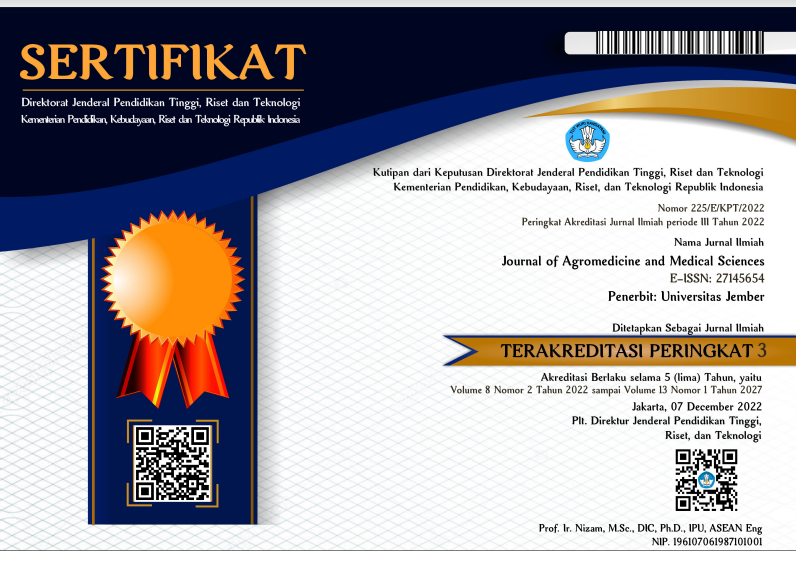Increased Plasma GLP-1 Levels after Resistant Starch Type 3 From Cassava Starch (Manihot Esculanta Crantz) Diet on Diabetic Rat
DOI:
https://doi.org/10.19184/ams.v4i2.7876Abstract
Diabetes mellitus (DM) occur when human body is unable to produce enough insulin and/or unable to use insulin effectively, resulting in an increase of blood sugar levels (hyperglycemia). Indonesia has ranks fourth after United States, China and India in the prevalence of DM. Controling blood sugar and insulin levels can be done through the stimulation effect of Glucagon- like peptide-1 (GLP-1). The goal of this study was to determine the effects of resistant starch type 3 (RS3) from cassava starch in increasing plasma GLP-1 levels. This reasearch use male mouse (Ratttus novergicus) as a diabetic model by providing a high-fat diet (HFD) for one mounth than combine with intraoperitonel injection of low dose streptozotocin (STZ). The mouse then grouped into 4 groups randomly (1) normal or negative control, (2) cassava starch diet, (3) RS3 diet, (4) positive control. Blood sugar levels were measured before and after STZ injection to determine the diabetic conditions (blood sugar > 200 mg /dL). After 4 weeks of dietary administration blood sugar and plasma GLP-1 levels were examined using ELISA. Statistical analysis showed decreased in blood sugar levels and increased in plasma GLP-1 levels after one mounth of RS3 diet. This research shows that RS3 from cassava starch has a potential role as a nutritional therapy on diabetes mellitus condition.
Keywords: Resistant starch type 3, cassava starch, GLP-1, Blood Sugar, Diabetes Mellitus






















